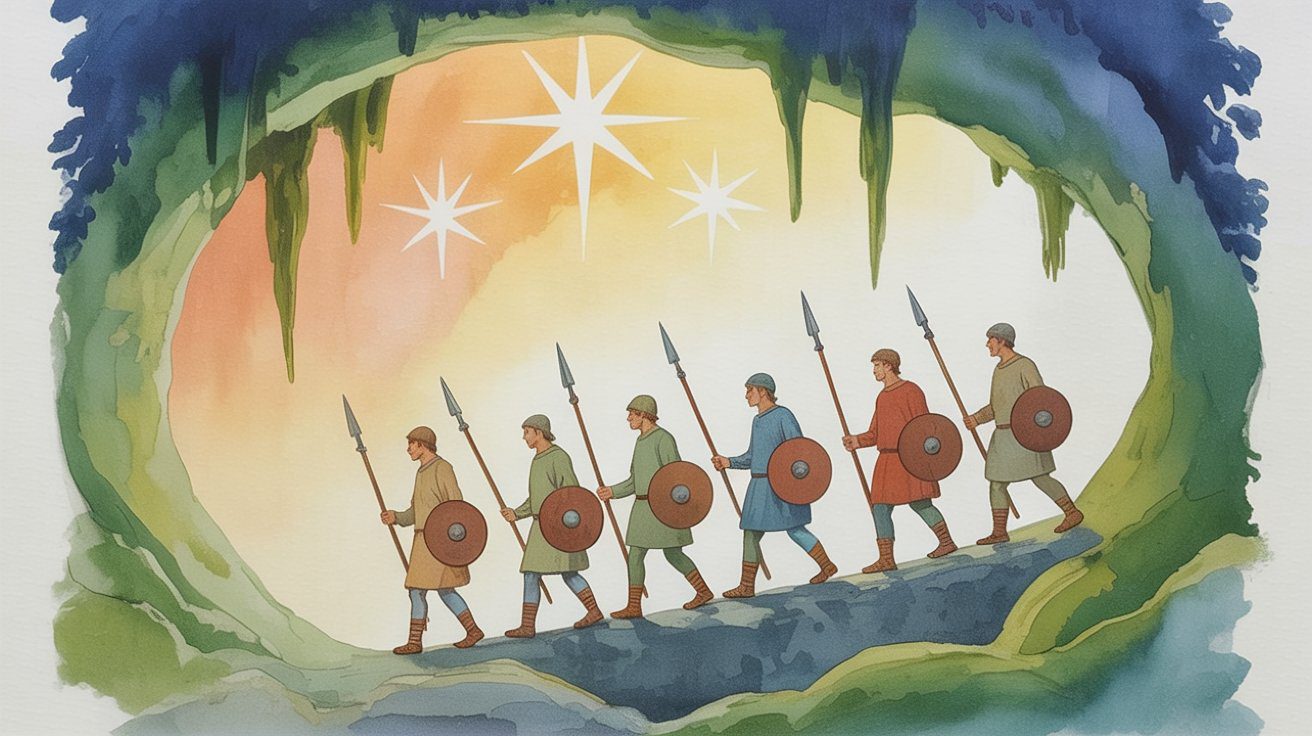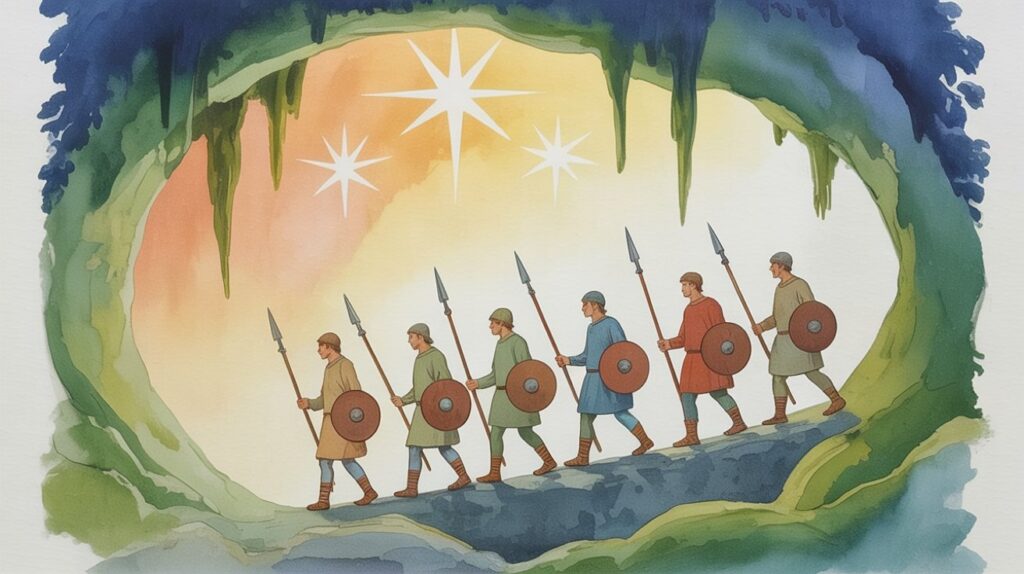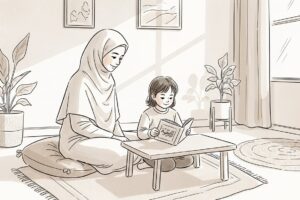
When the Cave Felt Safe: What Hijrah Teaches Us About Trusting Allah 💎
🌙 The Moment in the Cave That Changed Everything
One of the most beautiful lessons from Hijrah comes from a quiet, moonlit cave — the Cave of Thawr. The Prophet Muhammad ﷺ and Abu Bakr رضي الله عنه were hiding there as Quraysh searched for them. Fear was near, but faith was nearer.
Abu Bakr whispered, “If they look down, they will see us.”
The Prophet ﷺ replied calmly,
“Do not be sad. Indeed, Allah is with us.” (Qur’an 9:40)
That moment transformed fear into peace — a living example of tawakkul, trusting Allah completely even when everything seems uncertain..

🌿 What Is Tawakkul, Really?
Tawakkul means putting your trust completely in Allah while doing your best.
It doesn’t mean sitting back and waiting for things to happen — it means working hard and believing Allah will take care of the results.
The Prophet ﷺ didn’t walk into danger recklessly. He prepared carefully for the Hijrah:
- He chose a trustworthy guide.
- He planned their route secretly.
- He even stayed hidden for three days in the cave to protect the mission.
But even with all that preparation, he never forgot: success only comes from Allah.
That’s what real tawakkul looks like — effort + faith.
💖 Lessons for Kids and Families
Here’s how we can bring this moment from the cave into our everyday lives:
1️⃣ True Safety Comes from Allah
We often feel safe because of things — locked doors, warm homes, or being close to our parents.
But Hijrah reminds us: safety isn’t about where we are — it’s about Who protects us.
Encourage your child to say:
“Allah is with me”
whenever they feel nervous or scared. It’s a powerful reminder that they’re never alone.
2️⃣ Courage Is Calmness
When everyone else was worried, the Prophet ﷺ stayed calm. That’s the courage of faith — not shouting or fighting, but believing quietly that Allah is in control.
Ask your child:
- “What makes you feel scared sometimes?”
- “What can you do to remember Allah in those moments?”
This helps them connect the Seerah story to their emotions.
3️⃣ Plan, Then Pray
Teach children the balance: plan like Abu Bakr رضي الله عنه, but trust like the Prophet ﷺ.
For example, study hard for a test—but say Bismillah and leave the results to Allah.
🌱 How to Practice Tawakkul
Learning about tawakkul is one thing — but living it is what truly brings peace to the heart. Here are simple, practical ways families and children can practice tawakkul every day:
🌸 1️⃣ Remember Allah in Every Situation
Whether you’re nervous about a test, a job interview, or moving somewhere new — start with Bismillah and remind yourself, “Allah is with me.”
Just saying it out loud builds inner calm and confidence.
🌸 2️⃣ Do Your Best, Then Let Go
Tawakkul doesn’t mean waiting for miracles without effort.
It means doing everything you can, then trusting Allah with the outcome.
For kids, this could mean studying hard and then saying:
“I did my best — the rest is in Allah’s hands.”
🌸 3️⃣ Replace Worry with Du‘a
Every time worry appears, turn it into a du‘a.
Instead of thinking “What if it goes wrong?”, say “Ya Allah, guide me and make it right.”
This shift turns fear into faith.
🌸 4️⃣ Reflect on Past Moments of Trust
Remind your family of times Allah helped you before — a sickness healed, a problem solved, a door unexpectedly opened.
Talking about these blessings strengthens everyone’s belief that Allah never leaves those who trust Him.
🌸 5️⃣ Teach by Example
Children learn tawakkul not from words, but from watching calm, patient parents.
When something stressful happens, show them that you choose peace over panic and du‘a over doubt.
🌤️ A Modern Reflection
In our world of uncertainty — new cities, new schools, and big changes — we all need reminders of calm and courage. The lessons from Hijrah show us that peace doesn’t come from controlling everything; it comes from trusting Allah through everything.
Just as the Prophet ﷺ said in the cave:
“Do not be sad. Indeed, Allah is with us.”
When we remember those words, we bring the peace of that cave into our own hearts — proving that the greatest journey isn’t just from Makkah to Madinah, but from fear to faith.



